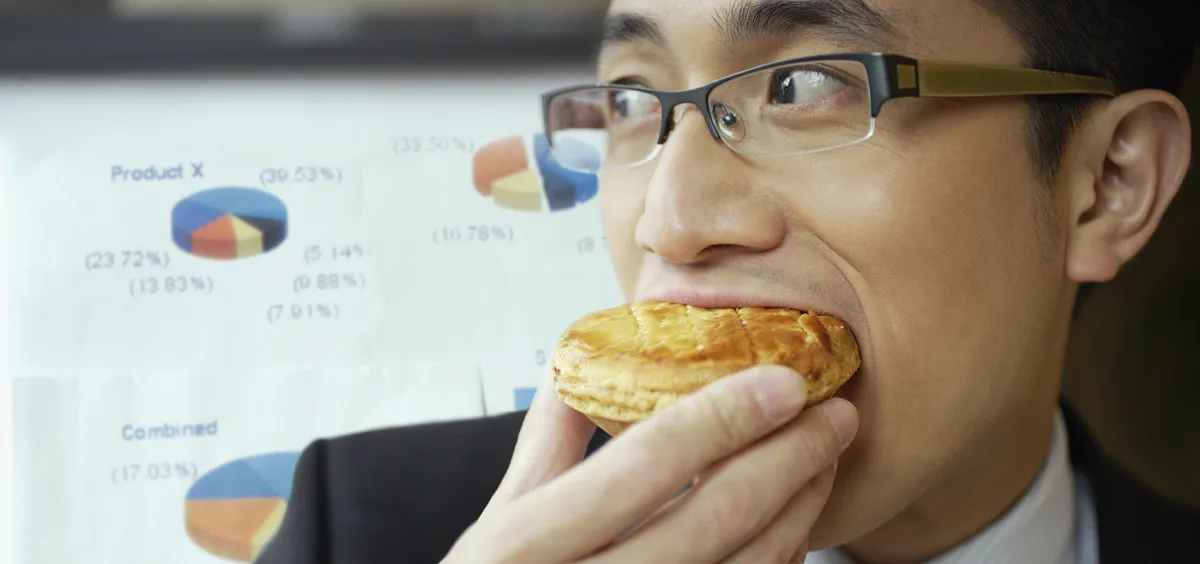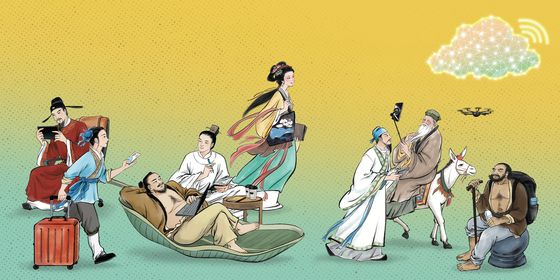Idioms and phrases for everyday sustenance
Choice Chengyu is a regular column, examining interesting, unique or newsworthy examples of chengyu—four-character idioms or proverbs, derived from historical and mythical events.
As a traditional saying goes: “民以食为天 (Food is god for the people).” Eating (吃) has always been a top priority for the Chinese, who are infamously known for consuming just about anything on earth, even stinky tofu and insects.
Likewise, many Chinese expressions include the character 吃 (eat), though in many cases, they metaphorically refer to “experience” rather than to the literal act of chewing and swallowing. For example, “吃醋 (eating vinegar)” means “to be jealous”; “吃苦 (eating bitterness)” means “to suffer hardship”; and “吃闭门羹 (eat closed-door soup)” is to be refused entrance somewhere. “吃软饭 (eat soft rice),” meanwhile, means “living soft,” usually off another person’s labor.
Besides these phrases, there are numerous chengyu about what to eat, how to eat, and the feeling or even consequences of eating. Here are a few:
狼吞虎咽 Gobble like wolves and devour like tigers
This chengyu refers to eating quickly and messily, like hungry beasts:
I was so hungry that I wolfed down a big bowl of rice.
Wǒ è huài le, lángtūn hǔyàn de chī le yí dà wǎn mǐfàn.
我饿坏了,狼吞虎咽地吃了一大碗米饭。
细嚼慢咽 Chew carefully and swallow slowly
On the other end of the spectrum, this idiom describes carefully and patiently masticating one’s food, which is a suggestion often heard from one’s parents:
When you eat, chew carefully and swallow. That’s good for your health.
Chī dōngxī yào xìjiáo mànyàn, duì jiànkāng yǒu hǎochù.
吃东西要细嚼慢咽,对健康有好处。
囫囵吞枣 Swallow a date without chewing
This chengyu is often used as a metaphor, meaning “to read hastily without thinking” or “to lap up knowledge without digesting it”:
One must mull over what one has learned, and not take it in without discrimination.
Xuéxí yào fǎnfù sīkǎo, bùnéng húlúntūnzǎo.
学习要反复思考,不能囫囵吞枣。
食不知味 Eat without relish
This idiom means having no appetite for food, usually describing someone in low spirits:
Recently, she has been sleeping fitfully and eating without appetite.
Zuìjìn tā yízhí qǐnbù’ānxí, shíbùzhīwèi.
最近她一直寝不安席,食不知味。
饱食终日,无所用心 Eat three square meals a day without doing useful work
This expression comes from The Analects of Confucius, describing lazy people who live like parasites:
He is well-fed and has no worries; no wonder he is putting on weight.
Tā bǎoshí zhōngrì, wúsuǒyòngxīn, nánguài fāpàng le.
他饱食终日,无所用心,难怪发胖了。
虎口夺食 Snatch food from the tiger’s maw
Stealing food from a tiger is a deadly risk, so someone who does this must be desperately hungry. This phrase is a metaphor for doing something dangerous:
You are trying to steal his client? That’s no different from snatching food from a tiger’s maw.
Nǐ xiǎng qiǎng tā de kèhù? Nà wúyìyú hǔkǒuduóshí.
你想抢他的客户?那无异于虎口夺食。
敲骨吸髓 Break the bones and suck out the marrow
This chengyu refers to cruel exploitation:
He has been an official for years, doing nothing but sucking the life-blood of the public and amassing wealth for himself.
Tā wéi guān duōnián, qiāogǔ xīsuí, yǐ féi sīnáng.
他为官多年,敲骨吸髓,以肥私囊。
食髓知味 Eat the marrow and know its taste
The phrase literally means that marrow tastes so good, people who’ve tasted it always want to try it again. Accordingly, people can get used to taking certain advantages (see above) and want to continue doing so:
Having eaten the marrow and known its taste, he soon embezzled public funds again.
Tā shísuí zhīwèi, hěn kuài yòu zàicì tānwū gōngkuǎn.
他食髓知味,很快又再次贪污公款。
Cover image from VCG












